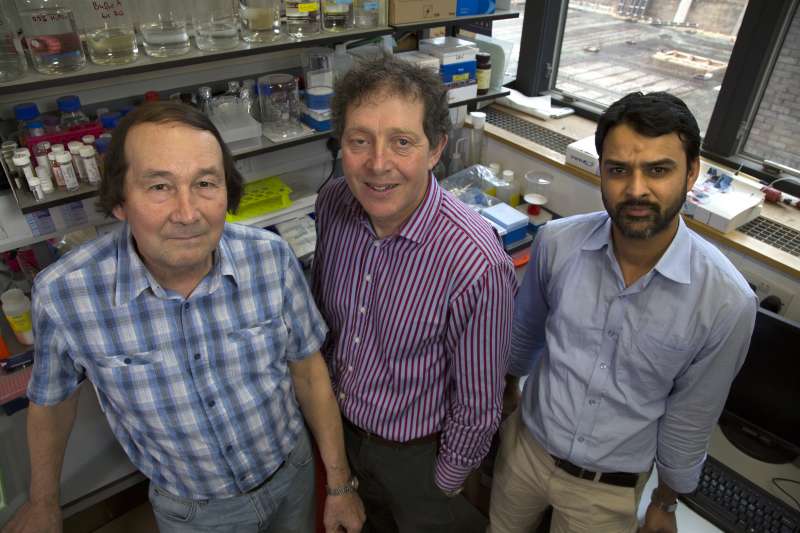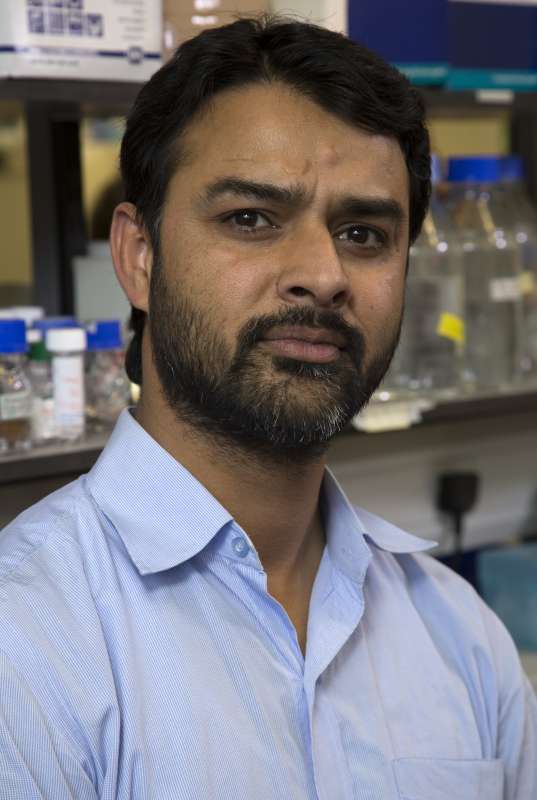An international team of scientists, including Dr Mahmood Alam from India, has discovered new ways in which the malaria parasite survives in the blood stream of its victims, a discovery that could pave the way to new treatments for the disease….reports Asian Lite News

According to the World Health Organisation malaria currently infects more than 200 million people world wide and accounts for more than 500,000 deaths per year. Most deaths occur among children living in Africa where a child dies every minute of malaria and the disease accounts for approximately 20% of all childhood deaths.
Dr Alam is from Lohardaga in India, graduated in Biotechnology in Ranchi and moved to Pondicherry for his Master’s Degree in Biotechnology from Pondicherry University.
The researchers at the Medical Research Council’s (MRC) Toxicology Unit based at the University of Leicester and the London School of Hygiene & Tropical Medicine identified a key protein, called a protein kinase, that if targeted stops the disease. The study is published today (Tuesday) in Nature Communications.
Malaria is caused by a parasite that lives inside an infected mosquito and is transferred into the human through a bite. Once inside the body, parasites use a complex process to enter red blood cells and survive within them. By identifying one of the key proteins needed for the parasite to survive in the red blood cells, the team have prevented the protein from working, thus killing the parasite. The discovery could be the first step in developing a new drug to treat malaria.
The scientists – funded by the Medical Research Council (MRC) and the Wellcome Trust – used state-of–the-art methods to dissect the biochemical pathways involved in keeping the malaria parasite alive. This included an approach called chemical genetics where synthetic chemicals are used in combination with introducing genetic changes to the DNA of the parasite.
The researchers found that one protein kinase, (PfPKG) plays a central role in various pathways that allow the parasite to survive in the blood. Understanding the pathways the parasite uses means that future drugs could be precisely designed to kill the parasite but with limited toxicity, making them safe enough to be used by children and pregnant women.
Co-lead author of the study Professor Andrew Tobin from the MRC Toxicology Unit which is located at the University of Leicester, said: “This is a real breakthrough in our understanding of how malaria survives in the blood stream and invades red blood cells. We’ve revealed a process that allows this to happen and if it can be targeted by drugs we could see something that stops malaria in its tracks without causing toxic side-effects.”
Professor David Baker, co-lead author from the London School of Hygiene & Tropical Medicine, said: “It is a great advantage in drug discovery research if you know the identity of the molecular target of a particular drug and the consequences of blocking its function. It helps in designing the most effective combination treatments and also helps to avoid drug resistance which is a major problem in the control of malaria worldwide.”

Dr Mahmood Alam (pictured), first author of the study at the MRC Toxicology Unit based at the University of Leicester, said: “There has been a great deal of excitement among malaria scientists about the outcome of our research since it not only tells us about the biochemical pathways that are essential for the parasite to survive in our bodies but it also allows us to design drugs that can spot these essential pathways and thereby kill the parasite.”
Dr Alam said: “As a kid I had malaria few times and I always wanted to study the malaria parasite so that effective drugs or vaccines could be developed.
“With the intention to study the malaria parasite I did my PhD training with Dr. Chetan Chitnis (now at Pasteur Institute, Paris) at International Centre for Genetic Engineering and biotechnology (ICGEB), New Delhi, India, where I studied the signalling pathways in malaria parasite Plasmodium falciparum.
“To further study the survival mechanisms of P. falciparum, I joined the research group of Prof Andrew Tobin at University of Leicester and then at Medical Research Council, Toxicology Unit. Here I have used the cutting edge technology of phosphoproteomics to further study the biochemical pathways in malaria parasite.”
Professor Patrick Maxwell, chair of the MRC’s Molecular and Cellular Medicine Board, said: “Tackling malaria is a global challenge, with the parasite continually working to find ways to survive our drug treatments. By combining a number of techniques to piece together how the malaria parasite survives, this study opens the door on potential new treatments that could find and exploit the disease’s weak spots but with limited side-effects for patients.”